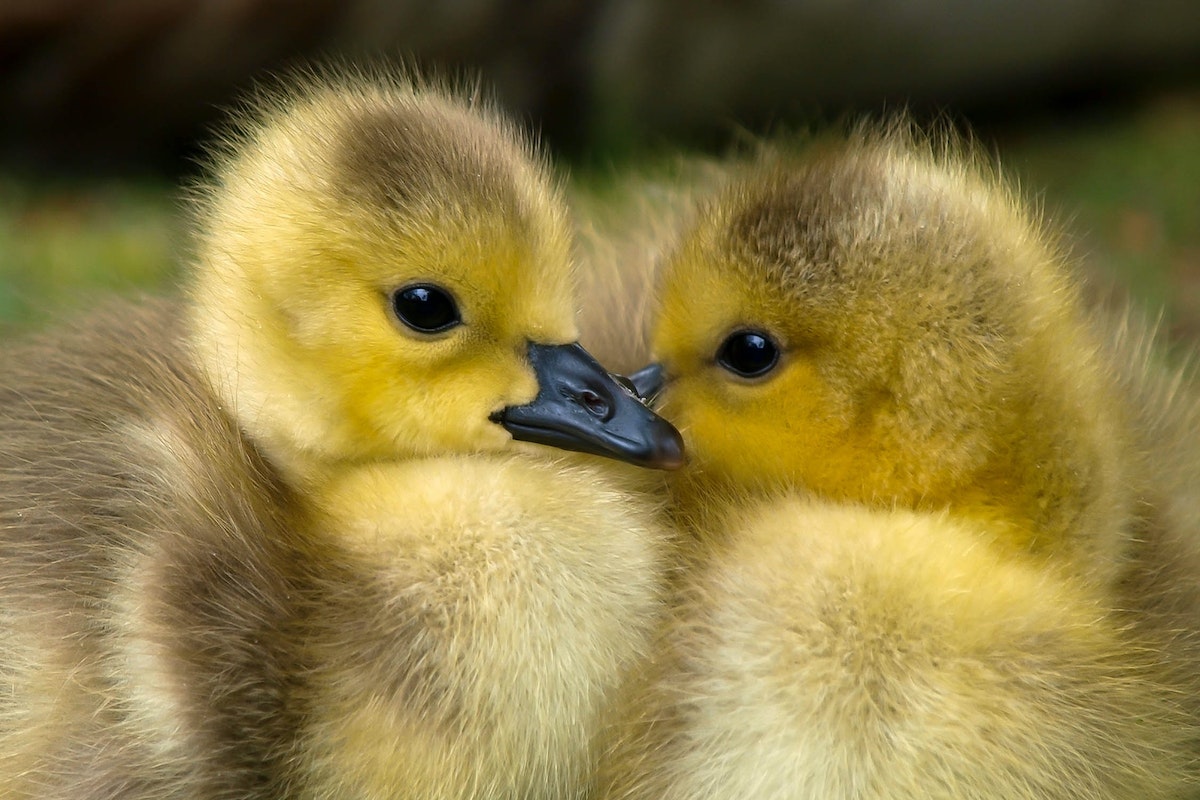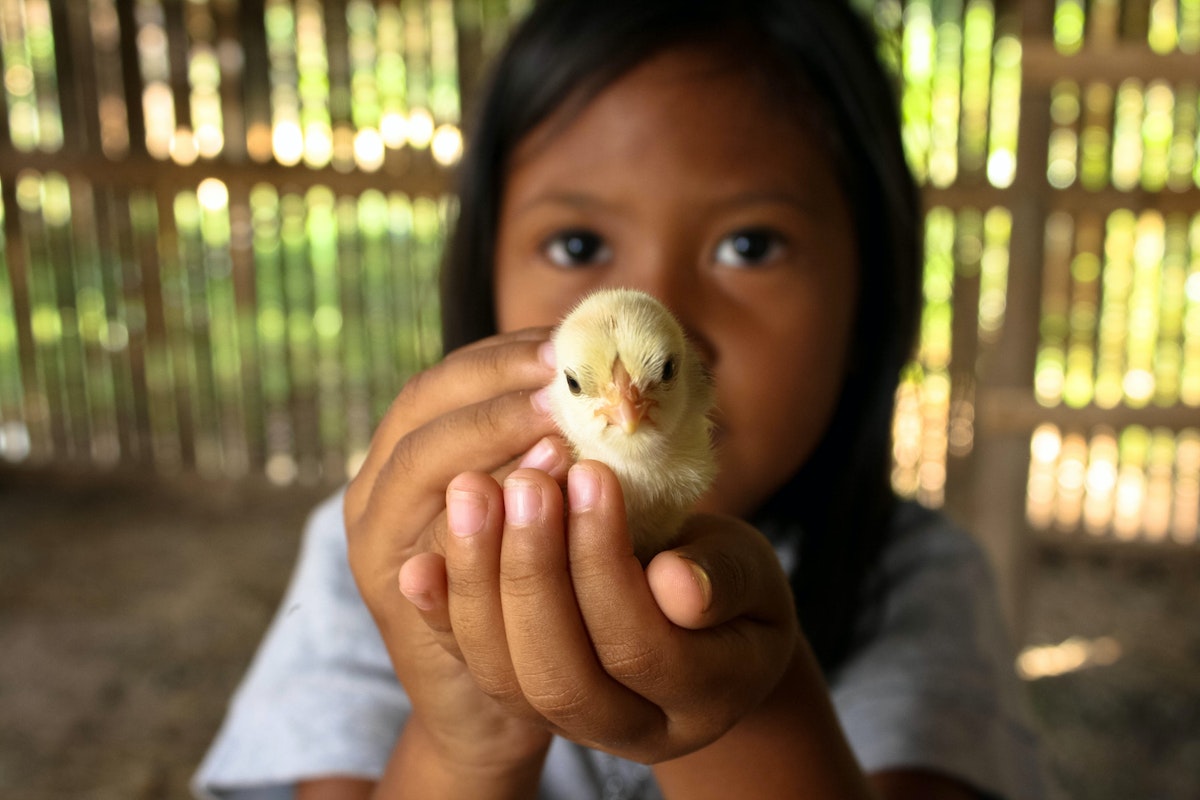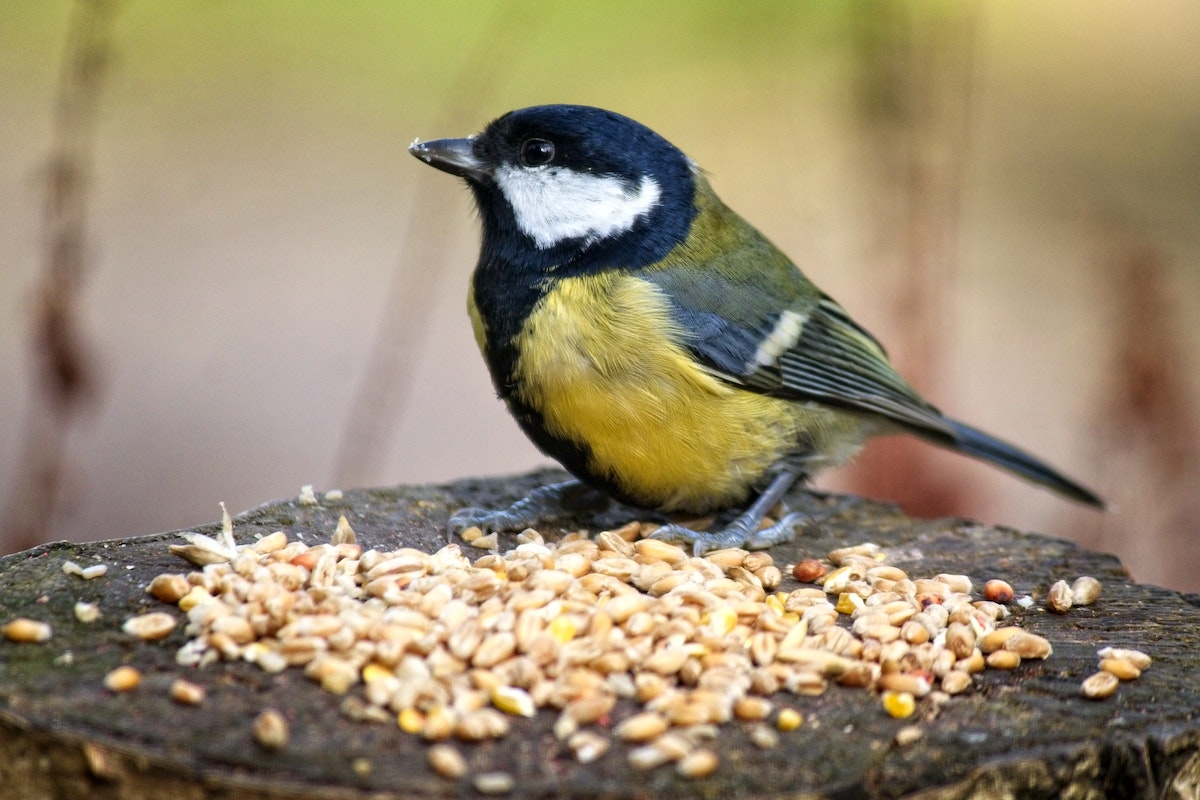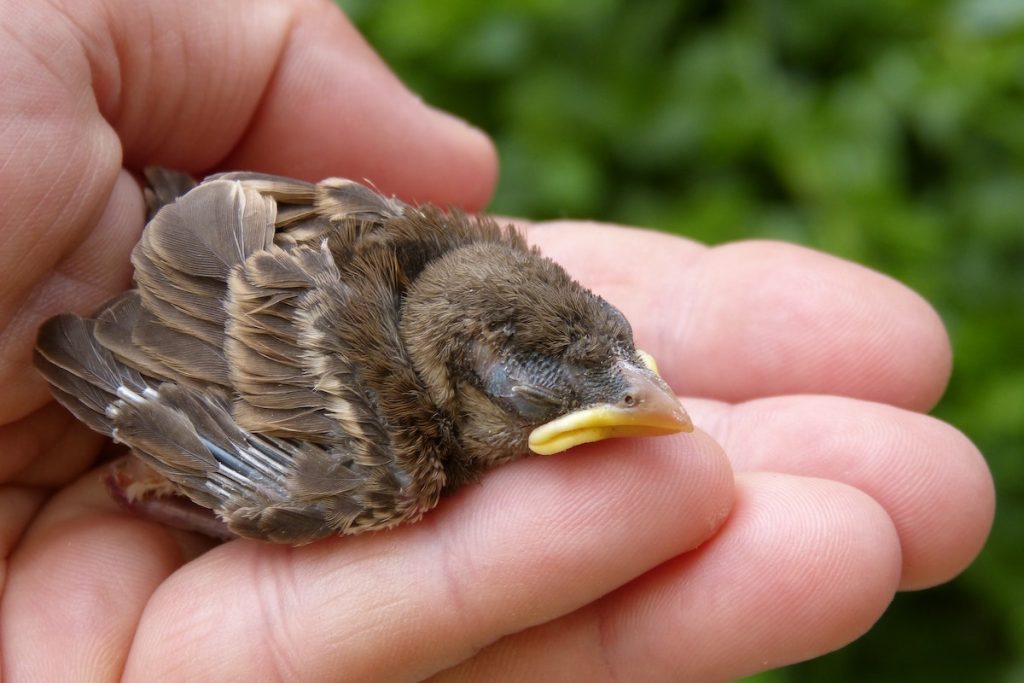- Not all solitary small birds you find in nature are abandoned – many baby birds hop out of the nest.
- Before helping, wait for a few hours to see if the parent birds come to rescue the birdies.
- To offer proper help to the little birds, consult a vet or specialists.
- Learn more about how to take care of the baby bird before you take any action.
It can be hard to resist not helping a little bird you found in nature or maybe in your backyard. But, sometimes, picking up the bird can be detrimental to its growth or even its health.
Namely, there is a difference between a birdie with and without feathers. Being abandoned or away from their nest may be completely normal in both situations.
However, some situations may call for help, especially ones where the bird is in immediate danger due to nearby predators, both domestic and wild. To provide proper help, you must learn more about baby birds because they are very sensitive at that age.
The following text is focused on young wild baby birds and the care they entail until their parent birds or animal rescuers arrive.
Facts About Young Birds You Must Know

To provide proper care to baby birds, you must know a few facts about wild birds before taking action.
Not all solitary birds are abandoned birds. For example, you may see a baby bird on the ground without a visible nest or parent in your view and be misled into thinking it’s all alone. Don’t jump to conclusions and attempt to rescue the birdie because if they have feathers, they may have hopped out of the nest but will become mobile in a day or two.
Another thing is that babies may seem as if the mother has abandoned them. However, in most situations, the mother is out hunting for food to feed her baby. Plus, babies are too loud when they need their mama, which makes it impossible for their parents not to find them. After an hour or two, their mom will come back and feed them. In this situation, if you want to help, you can sit around them to watch for any prey that may hurt the animals.
Fledgling vs. Nestling Bird: What’s the Difference?
Fledgling and nestling are two different stages of young birds. A nestling baby bird is tiny and pinky because it still has no feathers. At this stage, the young bird is dependent on its mama and must be in the nest for a few more days until it turns fully feathered.
You might have heard that parent birds recognize their baby birds by scent. So, when people find a baby bird without feathers, they avoid touching it for fear the parent will no longer recognize it because of the human smell. Despite this popular belief, if you find a baby bird that is tiny and pinky, you must pick it up and return it to the nest. The nest is always in the tree nearby, and chances are the baby has fallen out of the nest and cannot protect itself from predators.
On the other hand, the fledgling baby bird is grown and has feathers. However, it is still tiny. Usually, you may find baby birds during the fledgling stage on the ground hopping around like injured animals. Do not pick them up. Fledgling birds hop off their nest to learn how to fly. Most birds spend several days on the ground until they feel ready to spread their wings and become independent.
In these situations, the best help you can offer is to monitor the bird to protect it from predators and offer help if needed. Nonetheless, just because a bird is by itself doesn’t mean its mother isn’t nearby – some birds stay with their mothers for months.
3 Ways to Take Care of a Baby Bird

Taking care of a baby bird is a job with many responsibilities because they are very delicate and sensitive. If you can confirm that the baby bird is abandoned and no pet parents are coming to save it, then you need to begin mission rescue:
Provide A Safe Environment
It is highly important for the baby bird to be at a safe distance from possible predators. For example, if you find a baby bird in your backyard, you should create a shelter for them far from domestic animals like cats and dogs or wild animals like foxes and raccoons.
Call A Professional for Advice
Reading the baby bird’s condition just by looking at it is difficult as it’s too small at this point. Therefore, before making any assumptions, make sure to consult with a vet to direct you on your next step.
Reach Out to Wildlife Rehabilitator Center
If you find a birdie in your backyard and cannot recognize if it is healthy or injured, call the nearest wildlife rehabilitator center and ask for help from a professional. When explaining the situation, make sure to describe the circumstances you found the bird in precisely and in detail.
When To Take the Baby Bird Indoors
Although it is advisable to leave the wild baby bird alone in nature to adopt survival mode, there are a few occasions where you need to react and bring the baby bird home. Therefore, take the bird home if:
- It’s too late, and the wildlife rehabilitator will take longer to come and save the bird.
- The parent birds do not arrive in more than two hours.
- The weather is too cold, and it begins to rain.
- The area is crowded with predators.
In these circumstances, the wisest option is to take the birdie home to protect it until the specialists come to rescue it. In the meantime, you should create a little shelter or keep the baby bird in a warm and darker place. Ideally, the room should not be noisy. Also, you need to create a makeshift nest.
Find a little container to put the baby in, layer it with paper towels so the baby can defecate at the edges, and cover the container with dark paper with small holes for proper airflow. You can add a heat lamp so that the baby can feel warm. Only attempt to feed the birdie after a licensed wildlife rehabilitator specialist instructs you to. If the vet or rehab specialists are not available, take the time to learn more about what foods work for the baby.
Regarding water, things get complicated. Newly-hatched and baby birds don’t drink water and get hydrated through the food given to them by their bird parents. So, refrain from giving an abandoned birdie water, as it may lead to suffocation by water in their lungs.
What Do Baby Birds Eat?

We have seen that most baby birds eat worms, live insects, or other food like fruits brought from mama or papa. However, nestling and fledging birds have different diets in home and indoor conditions.
The ideal food for a nestling is soft food. So, if you have other pets, you can borrow their fresh food and blend it until it turns mushy and give it to the birdie with a syringe or pipette. Other foods good for nestling are hard-boiled eggs.
Feeding a fledgling is much easier because they can feed themselves. However, if you notice the fledging struggling with the food, try to apply it to its mouth with a pair of chopsticks. Be gentle not to hurt the birdie.
It’s important to note that baby birds do not dehydrate. They absorb water from the food, and for that reason, the food should be moist and mushy.
Conclusion
Offering help to baby birds is no walk in the park. They are small and delicate, and you must offer a safe place if you’re taking care of them for a short period. Additionally, it’s very important to be informed about their age, stage of life, and diet to offer proper care for a young bird.
Remember: not all situations call for help. Most wild birds may appear abandoned when in fact, they may be learning how to fly. Therefore, before picking up the bird, stay around and monitor it for a while. Or provide a safe location and predator-free where birds can acquire flying skills.
FAQs
1) What can I feed a baby bird?
You can feed it mushy and soft food. You can use cat or dog soft food or even hard boiled eggs.
2) What bird varieties can you keep at home?
Parakeets and canaries are the most popular indoor birds since they can turn very affectionate with humans when well-cared for.
3) How to care for an injured or orphaned bird?
You must prepare a makeshift nest and check signs for blood. Call a vet or wildlife rehabilitator for further instructions if there are some signs of injury.
4) What foods can you offer for a baby bird?
You should offer it foods that are moist and full of proteins. Hard-boiled eggs are a great option.

